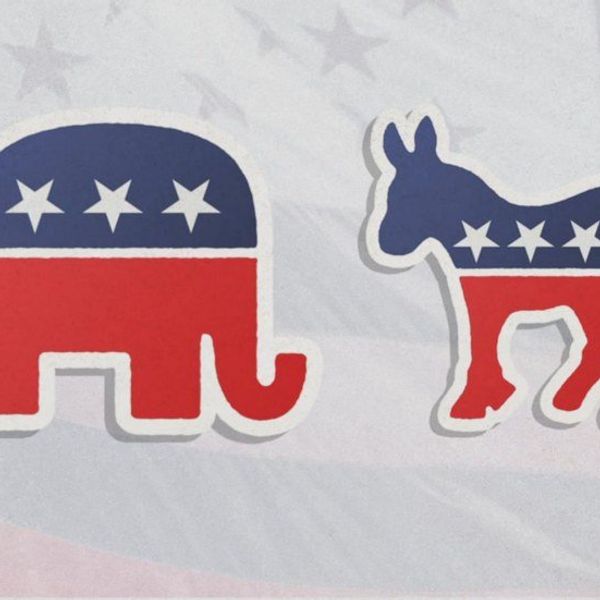This is the first election I'm eligible to vote in, and as the days count down to Election Day, I'm wishing more and more that I could be 7-year-old me again, that kid who was happy Bush got reelected because that's who Mommy voted for. Don't get me wrong, I'm glad to have a say in the fate of my country, but I'd take a mulligan on this election season in about a second flat. But I'm not going to talk about the candidates; that's a mess for another day. Instead, I want to talk to the people who plan to cast their ballot for a third-party candidate on November 8.
This isn't a treatise against third parties or people who vote for them. If anything, it's a criticism of the U.S. election process, because the unfortunate fact of the matter is that our system is not set up to allow third-party candidates into the Oval Office. It's just that simple: Third-party candidates don't win. We see it again and again: Ralph Nader, Ross Perot, even Teddy Roosevelt when he ran on the Bull Moose ticket. No matter how rich, popular and successful third-party candidates are it's never enough. Sure, one might win the presidency some day, but in all likelihood that's not going to happen as long as our elections are run under their current system.
But it's not enough to just say that, so let's talk about why.
There are two main issues at play here. First, our government runs on a two-party system, one of the few things about our government that makes both the Democratic and Republican parties happy. It turns out that no matter how little our two dominant parties like each other, fighting just one other party for votes is a lot easier than fighting three or four. So they work together in true bipartisan spirit for the common goal of keeping votes and power for themselves. One of the biggest ways they do this is by making sure that our heavily publicized presidential debates are among candidates of the dominant parties only. This insures that most voters will vote for a main-party candidate because those are the candidates they know, leaving citizens who would even consider voting third party in a vast minority.
Second, we have a true mess of a voting system. The U.S. is not actually a direct democracy as our government would have us believe. Instead, our elections employ an electoral college, a group of people who vote for us based loosely on popular vote. Each state has a number of electors, and their votes are pledged to the candidate who wins the plurality of votes in their state. That means that if candidate X receives 40 percent of the popular vote in a certain state and candidates Y and Z each receive 30 percent, X would win all of that state's electors because he had more votes than either candidate, even though 60 percent of the state's population voted against him. (In this way, it is possible for a candidate to garner the most popular votes but lose the election). Once all the electors have voted, the candidate with the plurality of electoral votes wins the presidency. With this system, it's rare for a third-party candidate to win any electoral votes at all; the last time it happened was in 1968 when George Wallace won 46 electoral votes for the American Independents.
All this means that, realistically, a third-party candidate has next to no chance of winning a presidential election. Without the backing of a strong, established political party and faced with a system practically rigged against them, all that third parties really do is uselessly siphon votes. Because of this, I implore you to use your vote wisely, especially in such a close, divisive election as this. It may feel like a compromise of your values, but sometimes you have to go with your second choice to keep your third choice from winning.
Still, the beauty of democracy is that you can vote however you want, just please understand what you're doing. If you're going to vote third party, don't martyr your vote -- one of the most valuable assets you have as an American citizen -- as a moral or political statement. Not only are there are much better ways to make a point, but votes cast as political statements are still votes, and they can have dire consequences.





















